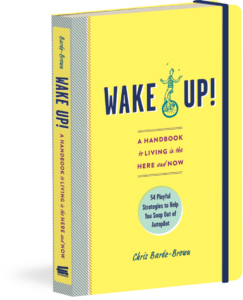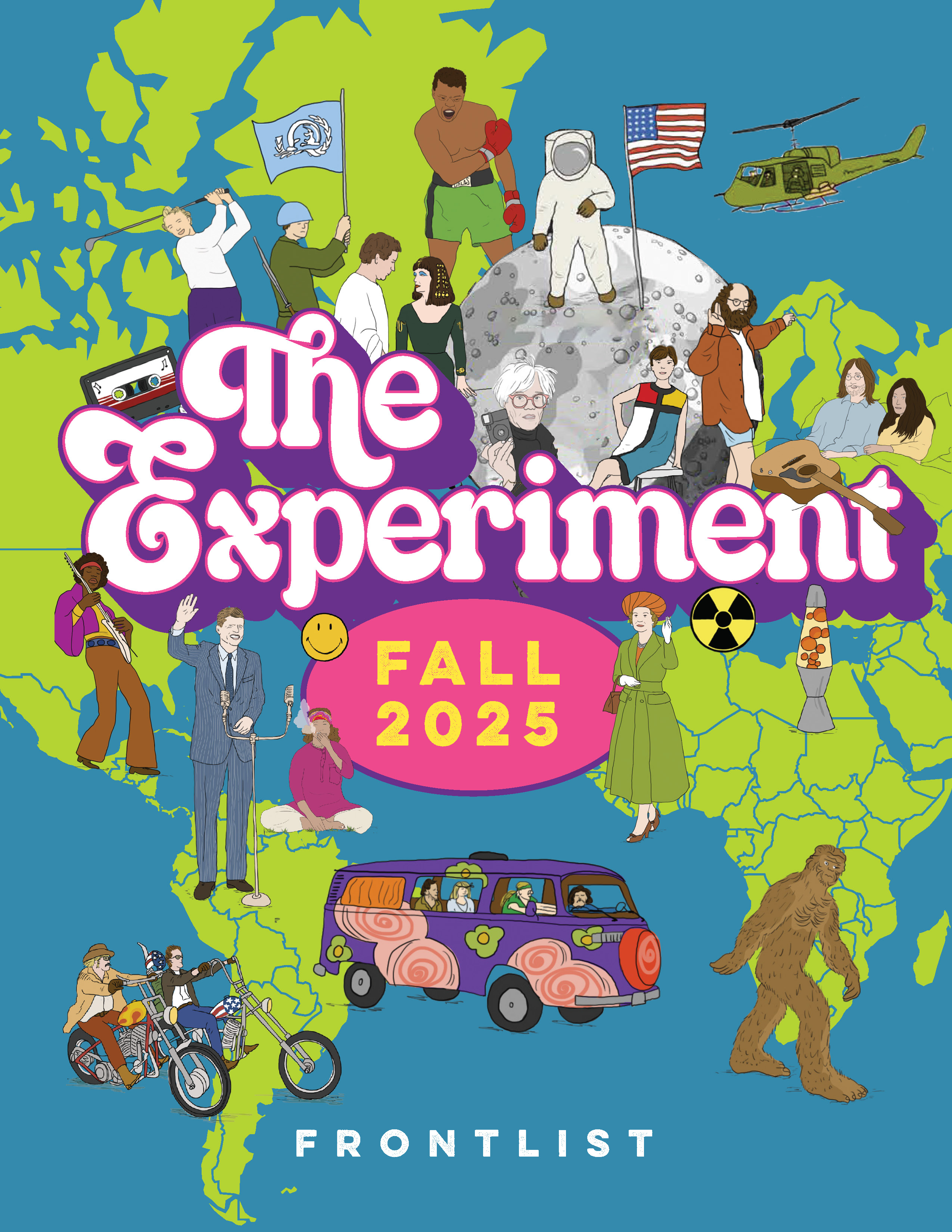We’re all familiar with the feeling of walking or driving a long distance and arriving at the destination with very little memory of the journey. This is an example of our subconscious taking over to save energy – your brain going on autopilot in order to save energy. And guess what? this doesn’t just happen when we drive. It happens every day at work and even when with our loved ones. It’s this widespread phenomenon of sleepwalking through life that Chris Baréz-Brown, TEDx speaker, Fortune 500 consultant, and author of Wake Up!: A Handbook to Living in the Here and Now—54 Playful Strategies to Help You Snap Out of Autopilot is trying to get us to awake from.
Wake Up! is a guided journal full of easy, highly actionable ideas designed to help people break free from the trap of living on autopilot (which we all do—80 percent of the time, believe it or not). From climbing a tree to writing a letter, the handbook consists of over fifty applicable, user-friendly, playful strategies that engage the imagination and stimulate the senses. We’ve excerpted one of the exercises from Wake Up! below for you to test out.
Wake Up!: A Handbook to Living in the Here and Now—54 Playful Strategies to Help You Snap Out of Autopilot
by Chris Baréz-Brown
###
THE INSIGHT
Our days are getting packed ever more full with increased demands on our attention and energy. We now consume about 100,000 words each day from various media, which is a massive 350 percent increase over what we handled back in 1980.
Many of us feel as if time is escaping us because of the speed at which we lead our lives and the pace our constantly innovating society sets. Days blur into weeks and weeks into months. The Roman philosopher Seneca may have put it best two thousand years ago: “To be everywhere is to be nowhere.”
When we start our day, we know we have a lot to do. The temptation is to leap into delivering that straight away.
If we start fast, we will end fast, exhausted and numbed. It is likely that we will have had very little awareness of others or ourselves during that day, because living frenetically means we lose connection with who we are and the world in which we live.
THE PLAN
To rebalance the speed, we are going to start slow.
Spend the first ten minutes of the day outside without digital distractions of any kind.
If it’s impossible for you to get outside, stand by an open window, get some fresh air on your face and look out into the world.
The perfect place for these ten minutes would be sitting in a park or garden, but anywhere outside will give you the advantage we all need. Find a place where you are comfortable either sitting or standing and just be still for those ten minutes, breathing deeply with a smile on your face, observing and connecting with the world around you.
The peace and the space and the view of the skies help us plug in to the energy of the universe.
As you do so, you may notice certain thoughts come into your head. Just let them drift through without questioning them. What you will often find is that you will get a clearer perspective on who you are, and what is important to you right now.
THE PAYOFF
The moments when we first wake are precious. This is when we are most open to connecting to our essence, the planet and our core values.
If you make this a daily habit you will find that the connection you create in those first ten minutes of the day is much easier to sustain when things get busy. By making it a deliberate act you will find it easier to respond to the world and not just react. We will lose it for sure, but if we take a moment to breathe and smile and look to the skies, it will come back quicker and help us remember how fantastic this life really is.
###

For more exercises and strategies, check out Wake Up!, available wherever books are sold September 19. Dive in and start your journey to the great Wake Up by preordering a copy here!


